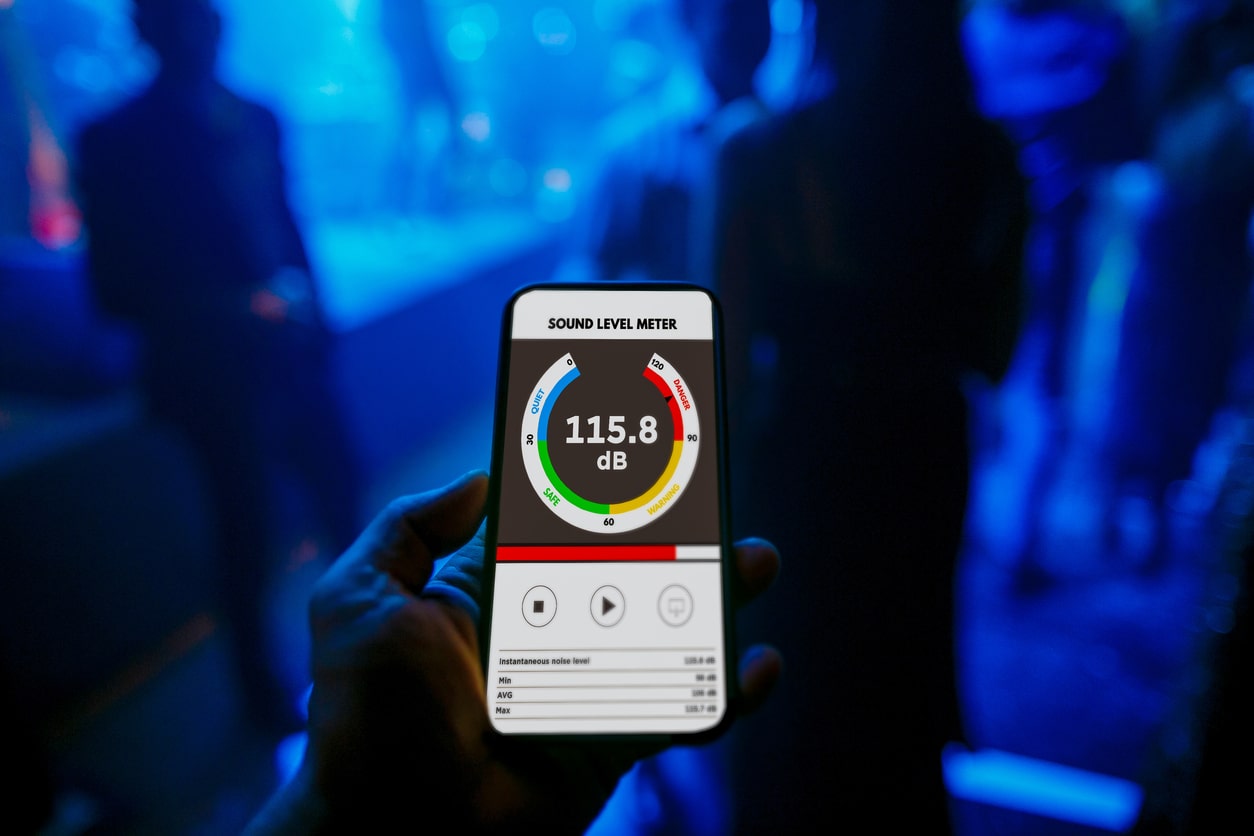We measure sound in decibels (dB). For example, whispering is about 30 dB, and a nearby siren rings around 120 dB. The threshold for noise-related hearing damage is extended exposure to noise at or above 85 dB. The louder the noise, the faster hearing loss can occur.
It’s hard to know which sounds to avoid when you aren’t sure how loud they are. A smartphone decibel meter app is one excellent tool to help you understand and adjust the sounds you’re exposed to and how they affect you.
How Does a Decibel Meter Work?

Decibel meters work with your phone’s audio software to measure the sound in your environment and give it a rating on the decibel scale. The rating will appear as either dB (decibels) or dBA (decibels A-weighted). A-weighted decibel measurements adjust for the way human ears perceive sound.
Are Decibel Meters Available for iOS and Android?
Because iOS and Androids use different audio software, they may not always have the same decibel meter options. For example, the National Institute for Occupational Safety and Health (NIOSH) developed the Sound Level Meter app for iOS systems because the software architecture they used for audio is similar to the architecture used in iOS devices.
While the NIOSH app isn’t available for Androids, many options are available in the Android app store. Check reviews and test out a few different apps to find the one that works best for you.
When Should I Use the Decibel Meter?
Use your decibel meter whenever you’re unsure if a noise is safe. A few common scenarios include:
- At Longview concerts
- During action movies
- At parties
- When playing music through your home or car stereo
- When testing a new appliance (air conditioner, treadmill, etc.)
If your decibel meter reaches or exceeds 85 dB, consider lowering the volume or wearing earplugs. High-fidelity earplugs are great options for movies or concerts when you want to reduce your risk of hearing loss without altering noise quality.
To learn more about protecting your hearing or to schedule a hearing test, contact SoundLogic for an appointment with one of our trusted specialists.